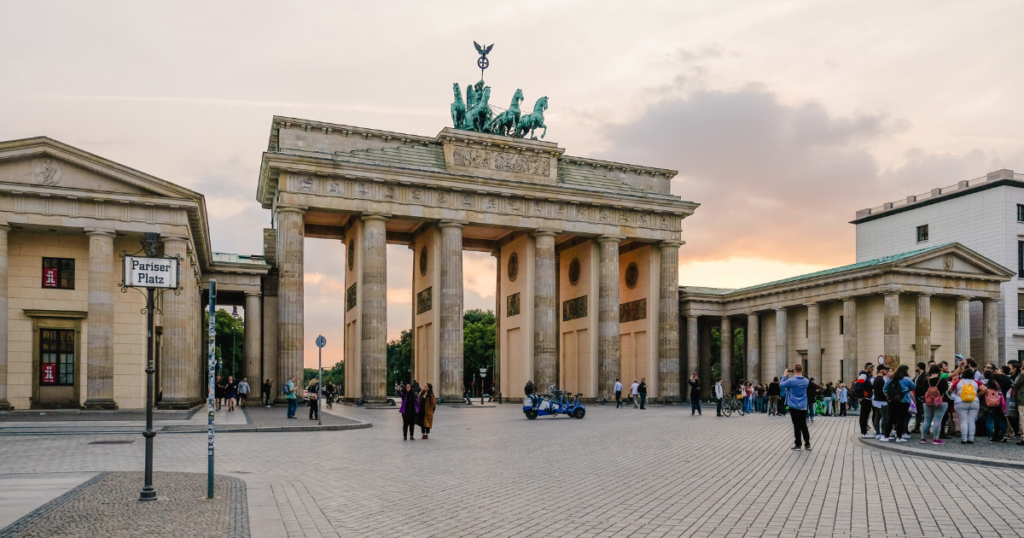How to Apply for a Germany Visa: A Step-by-Step Guide to Requirements and Conditions
Germany is not only one of Europe’s largest and most influential countries, but it’s also a popular destination for work, study, tourism, and even relocation. With its rich cultural history, strong economy, and world-renowned universities, Germany attracts millions of visitors each year. However, depending on where you’re from and the nature of your visit, you may need a visa to enter Germany. In this guide, I’ll walk you through the different types of Germany visas, the application process, and the requirements and conditions involved. This should help you understand the whole process from start to finish.

1. Understanding the Types of Germany Visa
Before diving into the application process, it’s essential to understand the different types of visas for Germany. The type of visa you’ll need depends on the purpose of your stay, as well as the duration.
A. Short-Stay (Schengen) Visa (Type C)
If you’re planning a short visit to Germany for tourism, family visits, business meetings, or short-term study programs (up to 90 days), you’ll need a Schengen visa. This visa is valid for up to 90 days within a 180-day period, and it allows you to travel within other Schengen countries as well.
B. Long-Stay (National) Visa (Type D)
For stays longer than 90 days, a National Visa (Type D) is required. This type of visa is usually for purposes such as work, study, family reunification, or other long-term stays in Germany. Here are some common categories for the National Visa:
- Work Visa: For those who have a job offer from a German employer.
- Student Visa: For individuals planning to pursue higher education in Germany.
- Family Reunion Visa: For family members of German residents or citizens who want to join them.
- Freelancer/Self-Employment Visa: For freelancers or entrepreneurs who intend to set up a business in Germany.
2. Eligibility Requirements for a Germany Visa
The eligibility requirements vary based on your nationality, the visa type, and the purpose of your visit. Here’s a breakdown:
A. General Eligibility Requirements
- Passport Validity: Your passport must be valid for at least three months beyond your intended stay, with at least two blank pages for visa stamps.
- Travel Health Insurance: You need health insurance covering at least €30,000, valid in Germany and the entire Schengen area.
- Proof of Financial Means: Applicants must show they can financially support themselves during their stay. For a short-stay visa, this is generally around €45 per day; for students, it’s around €934 per month.
- Accommodation: Proof of accommodation in Germany, such as hotel reservations, an invitation letter, or a rental agreement, is required.
- Purpose of Stay: You must provide documents that show the purpose of your visit, such as an invitation letter from a business, an enrollment letter from a university, or a job offer letter.
B. Country-Specific Conditions
Applicants from EU/EEA and a few other countries (e.g., the US, Canada, Japan) can enter Germany visa-free for short stays of up to 90 days. However, if they plan to stay longer, they will still need to apply for a residence permit once in Germany. For other nationalities, a visa is mandatory for entry into Germany.
3. Documents Required for a Germany Visa
The specific documents required will depend on the visa type. However, here is a list of essential documents you’ll likely need:
- Completed Visa Application Form: You can typically download this from the official German embassy or consulate website.
- Passport Photos: Two biometric passport-sized photos are usually required.
- Passport: As mentioned, it must be valid for at least three months beyond your stay.
- Proof of Health Insurance: A letter or certificate from your insurance provider.
- Proof of Financial Means: This could be bank statements, an income statement from a sponsor, or proof of a scholarship for students.
- Flight Itinerary or Travel Reservations: You don’t necessarily need to have a purchased ticket but should show a reservation.
- Accommodation Proof: Hotel bookings, a rental agreement, or an invitation letter showing where you’ll stay.
- Additional Documents Based on Visa Type:
- Tourist Visa: Travel itinerary, invitation letter from a host (if applicable).
- Business Visa: Invitation letter from the German company, proof of business relations.
- Student Visa: University acceptance letter, proof of finances, and academic records.
- Work Visa: Employment contract from a German company.
4. The Step-by-Step Application Process for a Germany Visa
Step 1: Determine Your Visa Type
Start by identifying the visa type best suited to your visit. If you’re unsure, check the website of the German embassy or consulate in your country, which will list the visa options and their specific requirements.
Step 2: Book an Appointment at the Embassy or Consulate
Most applications for a Germany visa require an appointment at the nearest German embassy or consulate. In some countries, Germany uses external visa processing centers (such as VFS Global) to handle appointments. Appointments can fill up quickly, especially during peak travel seasons, so book well in advance.
Step 3: Complete the Application Form
Download and complete the visa application form carefully. Make sure all the details match your supporting documents to avoid delays or rejections.
Step 4: Prepare the Required Documents
Gather all the required documents as per your visa type. Arrange them neatly in the required order, as this will make the process smoother at your appointment.
Step 5: Attend Your Visa Appointment
Bring all documents to your scheduled appointment. During the interview, you may be asked questions about your trip, accommodation, financial situation, and travel plans. This is also when you’ll submit your biometrics (fingerprints and photo) and pay the visa fee (usually around €80 for a short-stay visa and varies for long-stay visas).
Step 6: Wait for Processing
The visa processing time can range from 10–15 days for a short-stay visa, while long-stay visas may take several weeks. You’ll generally be notified when a decision is made, and you can usually track your application online.
Step 7: Receive Your Visa and Verify Details
Once approved, collect your passport from the embassy or processing center. Before leaving, double-check the visa details, including your name, dates of validity, and the number of entries allowed, to ensure accuracy.
5. Germany Visa Fees and Processing Times
- Visa Fees:
- Short-Stay Schengen Visa: €80 for adults; €40 for children aged 6–12; free for children under 6.
- Long-Stay Visa: Fees vary based on visa type, often around €75–€100.
- Some individuals (e.g., students, researchers, spouses of EU citizens) may be eligible for reduced fees or exemptions.
- Processing Times:
- Short-Stay Visa: Typically 10–15 days.
- Long-Stay Visa: Generally 4–12 weeks, depending on the embassy’s workload and the visa type.
6. Other Important Conditions and Considerations
A. Travel Insurance
A key requirement for all Germany visas is travel health insurance covering medical expenses up to €30,000. This should cover all Schengen countries and remain valid for the entire duration of your stay.
B. Financial Proof Requirements
Germany has strict financial requirements, particularly for long-stay visas like the student and work visa. Generally, students must demonstrate access to €934 per month (or around €11,208 for a year). This can be done through a blocked account, a scholarship, or a sponsor’s statement.
C. Language Requirements
For certain visa types, such as family reunification or work visas, applicants might be required to show proof of German language skills. The required level can vary, but it’s generally advisable to have at least A1-level proficiency in German for smoother processing.
D. Residence Permit
For long stays, obtaining a residence permit is essential. Once you arrive in Germany, you’ll need to register your residence within two weeks, after which you can apply for a residence permit at the local immigration office (Ausländerbehörde).

7. Germany Visa Extensions and Overstays
If you’re already in Germany and need to extend your stay, it’s crucial to contact the local immigration office well in advance. Extensions for Schengen visas are rare and only granted in exceptional cases (such as medical emergencies). Overstaying your visa can lead to fines, deportation, or a ban on future travel to Germany or other Schengen countries.
8. Helpful Tips for a Successful Application
- Apply Early: Start your application process as soon as possible, as some visas can take months to process.
- Provide Accurate Information: Inconsistencies in your documents can lead to delays or rejections.
- Check the Requirements Closely: Requirements can vary by country and embassy, so always refer to the German embassy website in your home country.

